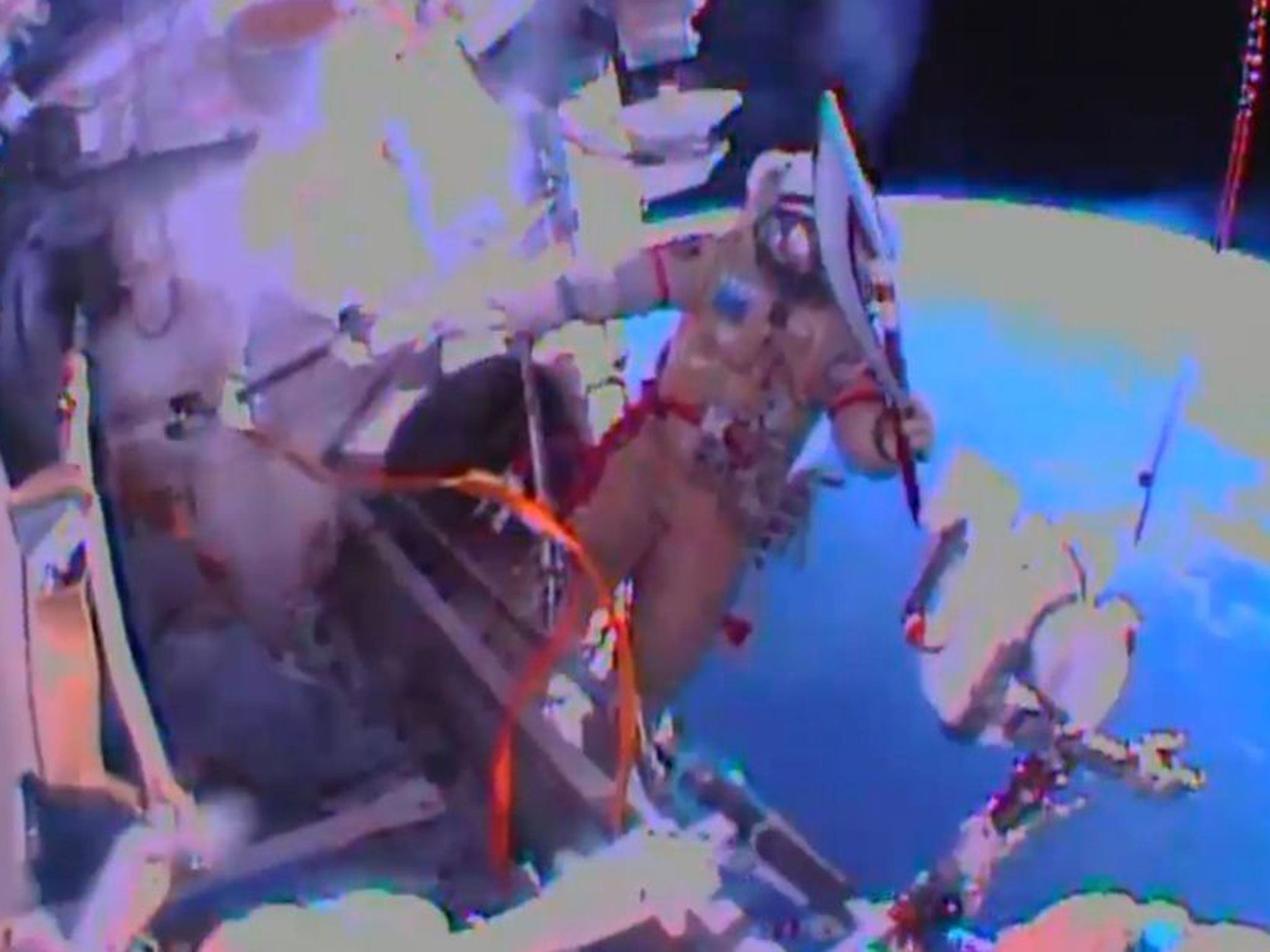Olympic Sochi 2014 Winter Games torch makes history in first spacewalk
Flight engineers Oleg Kotov and Sergey Ryazanskiy left their base at the International Space Station today carrying the torch

Your support helps us to tell the story
From reproductive rights to climate change to Big Tech, The Independent is on the ground when the story is developing. Whether it's investigating the financials of Elon Musk's pro-Trump PAC or producing our latest documentary, 'The A Word', which shines a light on the American women fighting for reproductive rights, we know how important it is to parse out the facts from the messaging.
At such a critical moment in US history, we need reporters on the ground. Your donation allows us to keep sending journalists to speak to both sides of the story.
The Independent is trusted by Americans across the entire political spectrum. And unlike many other quality news outlets, we choose not to lock Americans out of our reporting and analysis with paywalls. We believe quality journalism should be available to everyone, paid for by those who can afford it.
Your support makes all the difference.The 2014 Sochi Winter Olympic torch relay has made history today as the first Games torch to be taken on a spacewalk.
Carrying the torch are flight engineers Oleg Kotov and Sergey Ryazanskiy, who left their base at the International Space Station at 2pm GMT.
Although Olympic torches have been taken into space twice previously, in 1996 and 2000, the Sochi torch is now the first to leave the spacecraft.
The spacewalk is being broadcast live.
A Soyuz rocket carrying the torch blasted off from Baikonur cosmodrome in Kazakhstan at 4.14pm GMT on Thursday, manned by cosmonauts Russia's Mikhail Tyurin, American Rick Mastracchio and Japan's Koichi Wakata.
The four-month Sochi torch relay, which started in Moscow on 7 October, is the longest in the history of the Olympics. For most of the 65,000km route, the flame will travel by plane, train, car and even reindeer sleigh, but 14,000 torch bearers are taking part in the relay that stops at more than 130 cities and towns.
Last month, the flame travelled to the North Pole on a Russian nuclear-powered icebreaker. Later this month it will sink to the bottom of the world's deepest lake, Lake Baikal, and in February it will reach the peak of Mount Elbrus, at 5,642 metres (18,510 feet) the highest mountain in Russia and Europe.
The torch will be used to light the Olympic flame at Sochi's stadium on 7 February, marking the start of the 2014 Winter Games that run until 23 Feb. It will return to Earth on Monday.
Join our commenting forum
Join thought-provoking conversations, follow other Independent readers and see their replies
Comments